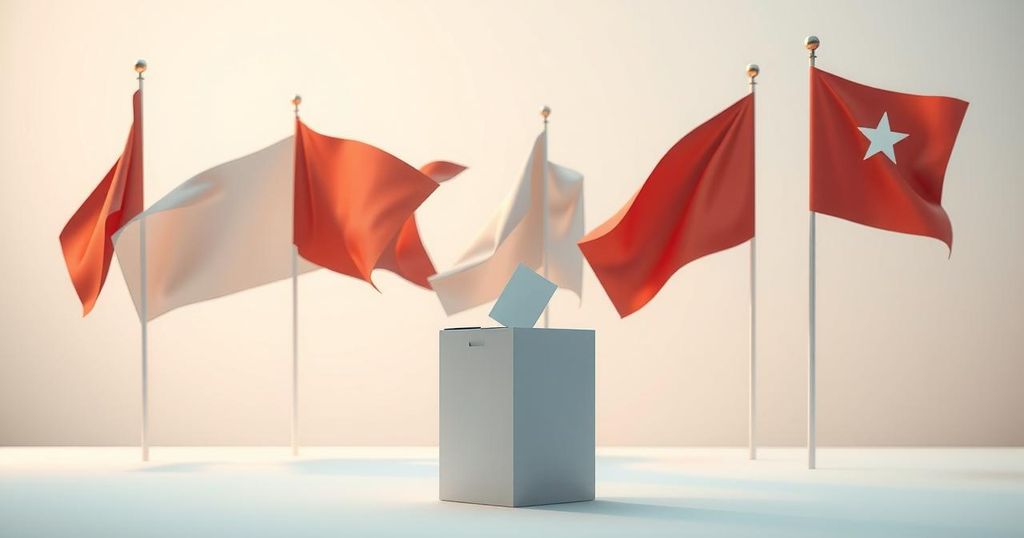Global Reactions to Merz’ German Election Win Amid Far-Right Concerns

Friedrich Merz’s election as CDU leader puts him on track to become Germany’s Chancellor. His win has sparked global reactions, with praise for his leadership but concerns regarding the far-right AfD’s rise. Merz faces the challenge of forming a coalition government while balancing complex geopolitical issues and responding to public sentiment towards the AfD.
World leaders have extended congratulations to Friedrich Merz, leader of the Christian Democratic Union (CDU), following his victory in the German elections. However, reactions have been mixed, particularly concerning the strong showing of the far-right Alternative for Germany (AfD), which secured 20.8% of the vote, finishing in second place. Merz’s victory sets him on a path to become the next Chancellor, facing the challenge of coalition-building and revitalizing Germany’s economy amidst a multifaceted geopolitical landscape.
International reactions highlight various perspectives. Antonio Costa, President of the European Council, expressed eagerness to collaborate with Merz to promote a stronger and more autonomous Europe. EU High Representative Kaja Kallas emphasized the need for a swift government formation, underscoring the significance of Germany’s role in European decision-making.
In the U.S., former President Donald Trump praised Merz’s win while framing it within his own political narrative, stating, “Much like the USA, the people of Germany got tired of the no common sense agenda, especially on energy and immigration.” The Kremlin took a more reserved stance, signaling a wait-and-see approach regarding future relations with Germany under Merz’s leadership.
French President Emmanuel Macron congratulated Merz, highlighting their shared commitment to a robust Europe in uncertain times. UK Prime Minister Keir Starmer expressed anticipation for strengthening bilateral relations with the newly formed German government, focusing on security and economic growth. Ukrainian President Volodymyr Zelenskyy remarked on the electoral outcome as a decisive voter choice with implications for Europe’s defense and unity.
NATO Secretary-General Mark Rutte also congratulated Merz, emphasizing the urgency for increased European defense spending under his leadership. Israeli Prime Minister Benjamin Netanyahu expressed intentions for close collaboration with the new German government to strengthen ties.
Conversely, some leaders like Hungary’s Prime Minister Viktor Orban refrained from congratulating Merz, instead celebrating the AfD’s electoral gains. Orban commended AfD leader Alice Weidel for doubling their vote share, suggesting a clear call for change in Germany’s political landscape. Italian Deputy Prime Minister Matteo Salvini echoed similar sentiments regarding the far-right’s influence, labeling it as a victory against perceived leftist agendas.
Austria’s far-right Freedom Party leader Herbert Kickl voiced concerns about a growing gap in the resistance against the AfD. Jewish community leaders, including Josef Schuster of Germany’s Central Council of Jews, expressed alarm over the electoral success of the AfD, noting its connections to right-wing extremism. Schuster remarked, “Although this result was to be expected, according to the polls, I am also shocked this evening by the electoral success of the AfD.”
As the political landscape in Germany shifts, the implications of Merz’s victory, coupled with the AfD’s rise, will require careful navigation to ensure stability and address the concerns raised by various segments of society.
Friedrich Merz’s election win marks a significant moment for Germany, attracting international reactions that reflect both optimism and concern. While many leaders look forward to collaboration under his leadership, the surge of the AfD poses challenges that must be addressed to ensure political stability. The growing influence of the far-right raises alarms about the future of political discourse in Germany and Europe.
Original Source: www.aljazeera.com







